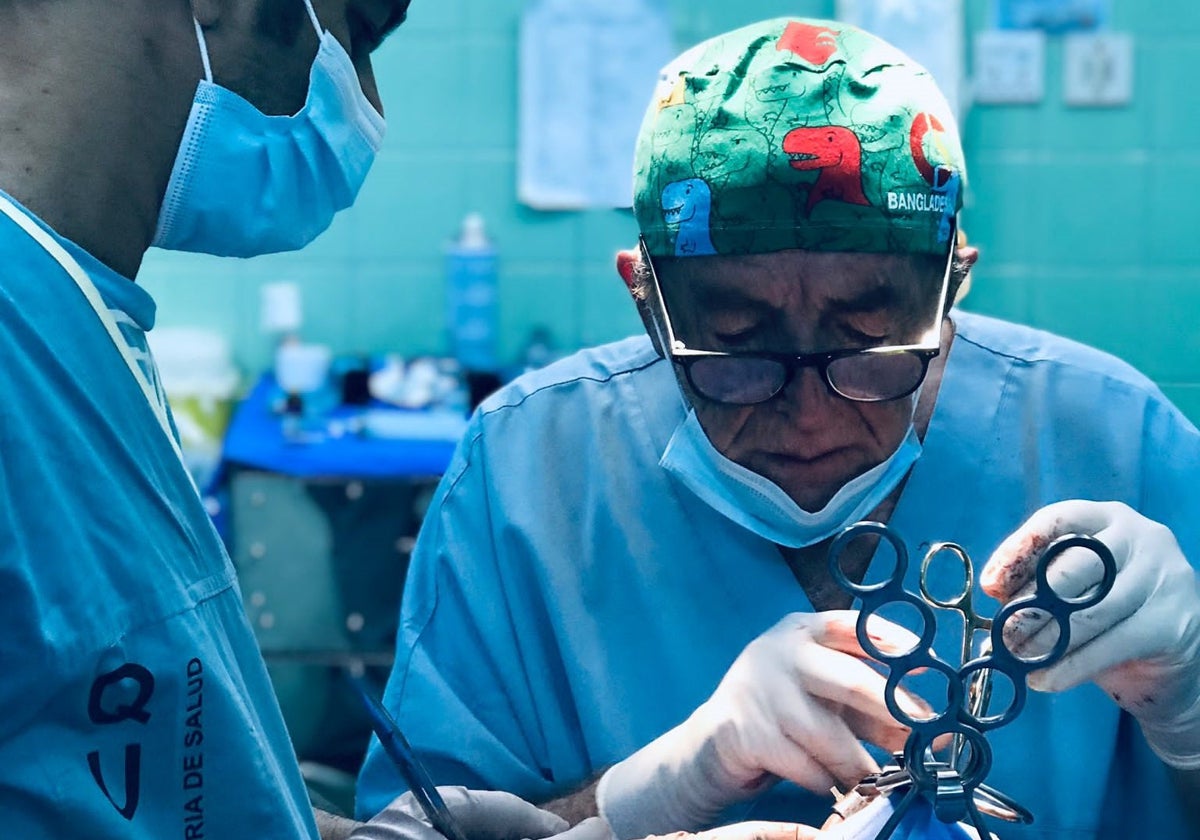

Sections
Highlight

Bangladesh has been several things throughout history. After its partition from Pakistan in 1971, it became synonymous with abject poverty. The country was considered something of a lost cause by development experts. Then, with the end of the military dictatorship in 1990, it became an example of a burgeoning democracy and economic miracle thanks to the creation of a substantial, global textile industry. Those were the days of the famous clothes tab 'made in Bangladesh'.
The more recent past, however, has made Bangladesh a prime example of 'one step forward, two steps back'. The consequences of such a slippage are many. If one focuses on the healthcare system, one can sum it up it one word: deficient. Putting it another way, healthcare exists only for a very small elite who have access to the best treatments and the latest technology.
Khulna is a city in Bangladesh with over one million inhabitants. It is one of the most densely populated areas in the world. It is only 200 kilometres from Dhaka, the country's capital and yet the journey from Dhaka to Khulna takes over four hours. The term distance takes on a different meaning when there is no road network worth mentioning. Tourists don't come here. If anything, there might be the odd group of travellers interested in an off-the-beaten-track experience.
José Luis Mulero, 45, is an anaesthetist at the Regional Hospital in Malaga. A healthcare professional should be several things to be able to call himself a doctor. There is medical knowledge, being good with your hands and, perhaps most importantly of all, having empathy. This Ronda native has all three qualities. So it is not surprising that, a few days ago, he found himself at Malaga airport with eight other colleagues, all ready to board a flight to Istanbul. From there to Dhaka and then on to Khulna - their final destination. The objective: to operate for 16 days straight on the most deprived people in that city.
For every day they spend there about ten operations will be performed. Some are scheduled in advance. COSA (Cooperación Sanitaria), as the group organising this humanitarian mission is called, has selected specific cases in a joint effort with the missionaries of the Xaverian order, who work on the ground at St Mary's Hospital in Khulna. COSA, in turn, is under the umbrella of Misioneros de la Paz, although it is completely independent. In addition to the scheduled operations, there are always a few ad hoc extras added. When word gets out that European doctors are operating, new patients are put on the OR list.
What drives someone to undertake such a complicated journey and hard work? Is it out of pity? Is it a vocation? Is it some kind of revelation? Jose Luis Mulero provides his response in a telephone interview with SUR. "I think that in the DNA of a health worker, in my case speaking as a doctor, is the need to alleviate, improve, train and cure [people's] health in other countries that are not as lucky as we are."
José Luis Mulero and the rest of the healthcare team go where the country's authorities do not. The concept of public healthcare as it exists in Europe is the closest thing to a fantasy here. Their working day there is ten, 11 or 12 hours long. "We have been received very warmly, kindly and gratefully by every Bangladeshi. They are grateful for any help, no matter how small, and that is comforting for them and for us. In principle, it has not been complicated at all because, in the face of any adversity, everyone joins forces and we always solve the problem," says Mulero in an attempt to summarise what the whole team from Malaga feels about this initiative
The most common pathologies treated are hernias and throat or ear problems. In addition to surgeons, the team also includes ENT (ear, nose and throat) specialists and a resident doctor. Carlos Vara, who is coordinating this particular mission, explains the reason: "It's about creating a pool of young doctors. This year we have doctors who are retiring."
One of these veterans is Luciano Ceballos. He leads the team of surgeons and has a CV as extensive as it is impressive due to his time at Malaga's Regional Hospital and in the many health campaigns in third world countries in which he has participated.
It is not just about logistics. Nor is it just the language barriers. There is an enormous complexity behind these missions. To imagine an operating theatre in Bangladesh as being similar to one in Europe is far from the reality. What is different? Everything. The team sets off from Malaga with a lot of its own equipment. The walls of the operating theatre may not be the whitest, but safety is guaranteed. The team treats the patient in Bangladesh as if they were a local patient in Spain.
Two intense weeks await this team of medical experts. When these professionals return to Malaga, many things will have been fixed for the patients who have passed through their hands. The most important being improved health.
Publicidad
Publicidad
Publicidad
Publicidad
Esta funcionalidad es exclusiva para registrados.
Reporta un error en esta noticia

Debido a un error no hemos podido dar de alta tu suscripción.
Por favor, ponte en contacto con Atención al Cliente.

¡Bienvenido a SURINENGLISH!

Tu suscripción con Google se ha realizado correctamente, pero ya tenías otra suscripción activa en SURINENGLISH.
Déjanos tus datos y nos pondremos en contacto contigo para analizar tu caso

¡Tu suscripción con Google se ha realizado correctamente!
La compra se ha asociado al siguiente email
Comentar es una ventaja exclusiva para registrados
¿Ya eres registrado?
Inicia sesiónNecesitas ser suscriptor para poder votar.